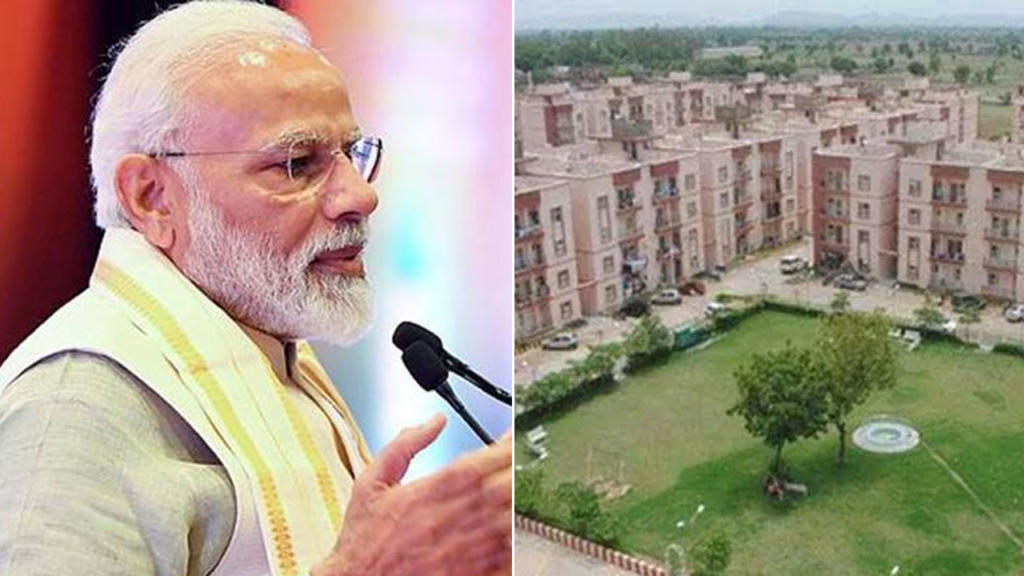Pradhan Mantri Awas Yojana (PMAY), the flagship housing scheme of Modi government has created more than 60 lakh jobs from 2015 to 2019. The scheme which was aimed at Housing for all was launched in June 2015 and has created 61.49 lakh jobs so far. The housing for all has been highly successful in urban as well as rural areas. Thousands of people from marginalized section of society in rural areas got houses under the Pradhan Mantri Awas Yojana. The study carried by Housing ministry and National Institute of Public Finance and Policy has created 18.92 lakh direct jobs and 42.57 lakh jobs through indirect effects.
The houses built under PMAY (G) are equipped with all basic amenities like toilet, LPG connection, electricity connection, LED bulbs, fans and clean drinking water. These facilities are being provided to BPL houses under other welfare schemes such as the Swachh Bharat Abhiyan, the Ujjwala Yojana LPG gas connection and the Saubhagya Yojana electricity connection. The merger of these schemes which are primarily targeted at poor households help families get a fully equipped house for living a dignified life. More than 10 lakh households in Madhya Pradesh alone have gotten houses equipped with toilet, LPG connection, electricity connection, LED bulbs and fan and clean drinking water due to efficient implementation of the welfare schemes.
The government has granted infrastructure status to affordable housing to help the developers in gaining an access to cheap bank loans. More than 70 lakh homes were sanctioned under the Pradhan Mantri Awas Yojana in less than four years. The government aims to build 1 crore houses under the scheme by 2022.
All the poor people and middle class in rural and urban areas can now dream for having their own homes with the government assistance. The demand in the real estate sector is growing at a good rate after initial weakness. In a sure shot to boost affordable housing, the Modi government has lowered GST rates on affordable houses and under-construction houses. The under-construction houses will be in the 5 percent tax slab from the 12 percent slab from April 1. The GST on affordable housing projects has also been reduced from the effected rate of 8 percent to 1 percent, the under-construction properties up to 45 lakh rupees in metro and non-metro cities will qualify for the bonanza.
The tax cut by the government will improve the demand in the affordable housing sector and will also help in clearing the glut in the sector. The low prices in this sector will help the middle class and economically weaker section of the society to purchase flats.
The opposition and media have claimed that there is an unemployment problem in the country. But in the last 16 months 2 crore jobs have been created, as per the data from social security scheme subscribers. 1.96 Crore new subscribers were added to EPFO from September 2017 to December 2018. EPFO covers all the firms which have 20 or more people with a salary of up to 15,000 rupees per month.
The major problem in the country is the lack of white-collar jobs, not just any jobs. To put it in perspective, if one looks athousehold help i.e. mechanic, electrician, car washer, delivery boy, they generally charge more than an average engineering graduate. A battery rickshaw puller in Delhi earns more than a graduate of engineering. Therefore, the need of the hour is to create more ‘formal white-collar jobs’.
